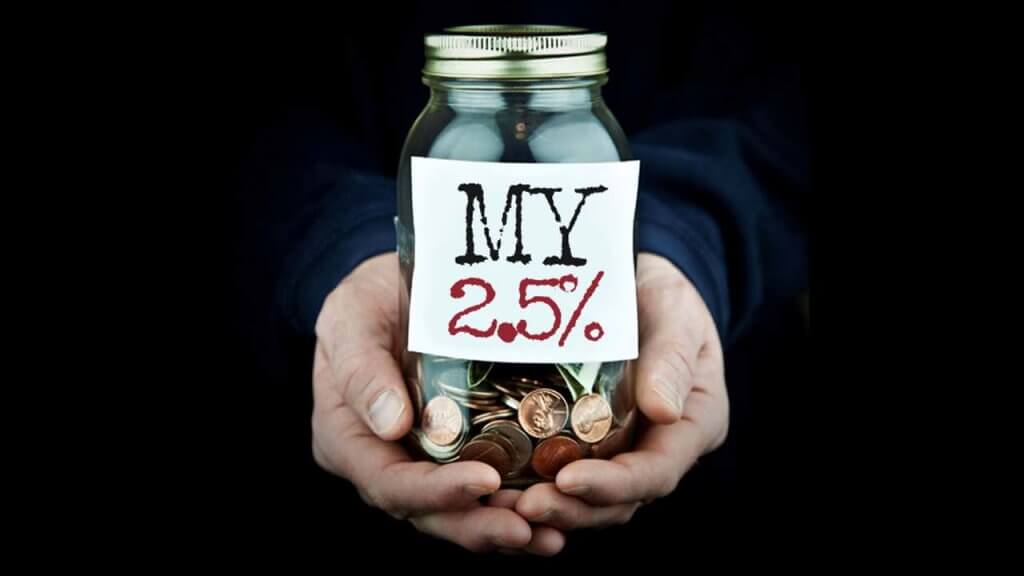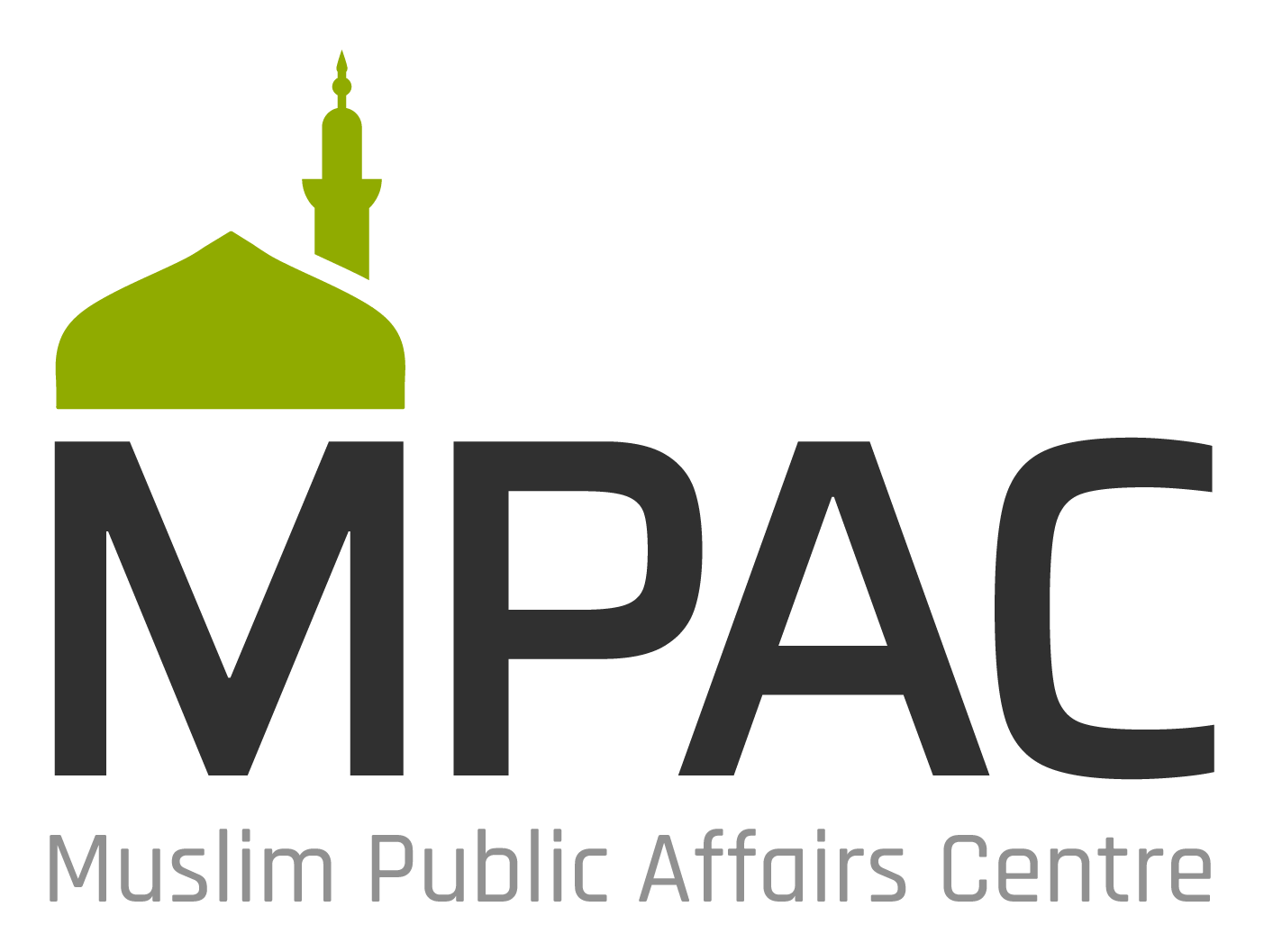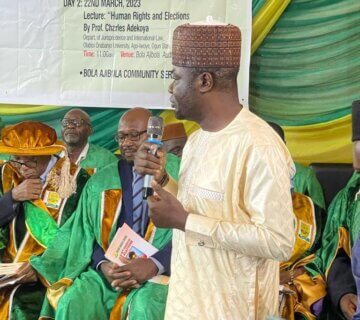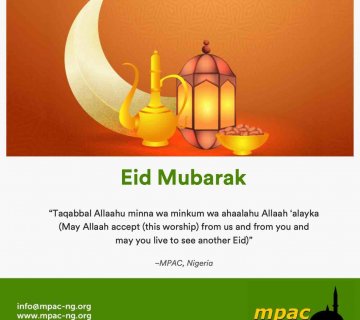Zakaat: Give Up the Poor’s Due
December 17, 2009.

The Prophet says: I have been commanded to collect zakaat from the rich among you and distribute it to the poor among you.
The payment of Zakaat becomes obligatory on every sane and mature Muslim and Muslimah whenever there is an economic activity resulting in the net increase in their wealth.
The following are the categories of production. Profit, investments and savings are subject to Zakaat.
1. The produce of land. The rate is one tenth of the produce of the unirrigated and undeveloped land and one twentieth of the produce of the irrigated and developed land.
2. Pure economic profit business.
3. Inheritance, once for all.
4. Cash, investments, food, merchandise, jewelry, gold and silver kept in the inventory for full one year and above the certain value defined as Nisaab.
The rate of Zakat on each of the above categories is different. In all the four recognized (Sunni) madhaeb the fiqh of Zakaat is very much the same with the key elements that make Zakaat compulsory for an individual being:
1. Islam2. Freedom
3. The nisaab4. Ownership
5. A year for other than treasure trove and tenths (A treasure trove may broadly be defined as an amount of money or coin, gold, silver, plate, or bullion found hidden underground or in places like cellars or attics, where the treasure seems old enough for it to be presumed that the true owner is dead and the heirs undiscoverable.)
6. Lack of debt in money
“Allah destroys wealth obtained from interest and will give increase for deed of charity”. Surah Baqarah: 276
-
“The nation that does not give Zakaat, Allah will bring about a drought on them (i. e. necessities of life will become scarce)”
-
“The persons on whom Allah has bestowed wealth, and he does not give Zakaat, on the Day of Qiyaamah, this wealth will be turned into a venomous bald serpent which will wind around his neck and, bite his jaws and say: “I am your wealth, I am your treasure” Bukhari.
- Gaining of the pleasure of Allah.
- Increase in wealth;
- Protection from losses;
- A cause thus established for Allah’s forgiveness and blessings are obtained;
- Safety from calamities;
- Protection from the wrath of Allah and from a bad death;
- The Zakaat will provide a shelter on the Day of Judgement;
- Security from seventy misfortunes;
- It will serve as a shield from the fires of Jahannam;
- It contributes to Barakat in wealth.
- It saves from fear and grief.
2. Its distribution in the place of its obligation,
THE NIYYAT (intention) OF ZAKAT.
- It is Fardh to form niyyat for the fulfillment of Zakaat.
- When giving Zakaat to a needy person, the niyyat should be that, “I am giving this as Zakaat.” If the niyyat is not made the Zakaat will not be valid.
- It is not necessary to reveal to the needy person to whom Zakaat is given that the cash or kind which is being given to him is Zakaat.
- When one has put aside an amount for Zakaat with the intention that he will give it to the needy, and at the time of giving Zakaat he forgets to make the niyyat, the Zakaat will still be valid.
- If one gives a deserving person some money as a gift but makes the niyyat of Zakaat, the Zakaat will be valid.
- Zakaat is Fardh at the rate of 2.5%.
- Zakaat should be given as soon as possible after it becomes due. It is possible that death may occur and thus lead to failure in fulfilling one’s obligations. It is normal for some people to delay Zakaat and give it during Ramadan in ordan to take advantage of the increased barakah of giving in Ramadan, this practice is discouraged as Zakaat must be given immediatelt after it falls due.
- A poor man cannot be paid for his work from Zakaat, nor can Zakaat be given in payment of anyone’s services, except when an Islamic government pays salaries to persons appointed by the government to collect Zakaat.
- Zakaat will only be valid if the recipient is made the owner of that amount.
- Zakaat may not be given or used for the construction of a mosques, madrasah, hospitals, a well, a bridge or any other public amenity. Please see more clarification on this ruling below under Restrictions.
- Poor students can be given a bursary from Zakaat. If the student is of an understanding age, the Zakaat must be given to him personally; and if he is not of an understanding age, then his Shar’i Wakeel (parents or legal guardian) must be given possession of the amount.
- Zakaat can be paid in kind from the same merchandise on which it is duet or alternatively, it could be paid in cash. It is of VITAL importance to ensure at all times that the recipient is made the OWNER of the ZAKAAT.
- Authority can be delegated to another person or an organization for the distribution of Zakaat in order that it be utilised in accordance with the laws of Zakaat.
- If a person requests someone to give a certain amount on his behalf as Zakaat, and that sum is given out, then that Zakaat will be valid. The sum given will be a right upon the one who made this request.
- If an agent is given Zakaat for distribution, and he does not distribute it then the Zakaat will not be regarded as fulfilled, and the sin of not discharging the obligatory duty of Zakaat will remain.
- It is best to give one’s Zakaat when it is due, rather than wait for Ramadan.
- The Poor (those who do not have enough to cover their basic needs). Only poor Muslims may be given Zakaat, some scholars have exempted from this category non-devout Muslims or sworn sinners.
- The Destitute (those with no property or income at all)
- The Collectors (Al Aamileen)
- People Whose Hearts are to be Reconciled (Normally new Muslims or those close to becoming Muslim.)
- Freeing Slaves
- Debtors (to help those heavily indebted with paying their debts)
- In the Way of Allah (normally taken to mean helping those fighting Jihad)
- Travellers (who find themselves in difficult circumstances)
Zakaat is one of the basic principles of Muslim economy, based on social welfare and fair distribution of wealth.
- Zakaat cannot be given to the families of the prophet- the children of his daughter, Sayyadatina Faatima (R.A.), and all members of prophet Muhammad’s (SAW) family and wives (Radiyallahu Anhuma).
- Zakaat may not be given to a dependant of the giver: This is a general requirement for all the categories. It is not permissible for the mukallaf to pay the zakaat on his property to his paternal/maternal parents, grandparents. In the same manner one’s children and grandchildren, cannot be given Zakaat, a husband and wife cannot give Zakaat to each other.
- Zakaat contributions cannot be given to such institutions or organizations who do not give the rightful recipients (Masaarif) possession of Zakaat, but instead use Zakaat funds for construction, investment or salaries.
- Zakaat cannot be given to non-Muslims. The same ruling applies to Wajib Sadaqah.
- If one cannot determine whether the recipient is needy or not, then it is better to make certain before giving him Zakaat. If Zakaat is given without inquiry and subsequently it is known that the recipient is wealthy the Zakaat is not valid. It has to be given again.
- Zakaat will not be fulfilled by purchasing books for an institution, or land purchased for public utility and made Wak’f.
- Zakaat cannot be used for the Kaf’n of a deceased person who has no heirs, because at that time he/she cannot become the owner.
- A dead peson’s debt cannot be paid from Zakaat.RESTRICTIONS
- Traditional zakaat laws generally do not cover trade.
- It is not permissible to pay zakaat to some members of the family (i.e. grandparents, parents, spouses, children), for if they were needy or poor, they are under the custody of the eligible man while Zakaat is considered a sort of Public Charity. Some scholars include this category amongst those that are eligible to collect Zakaat- Wallahu Alam.
- Expenditure to Zakaat fund is not permissible on the construction of mosques, hospitals or other such projects. Since in public and social welfare projects no one becomes the owner, so, according to traditional interpretations the Zakaat should not be used for this purpose. Thus you will find in the books of Fiqh statements emphasizing that the money should not be used to build the Mosques, schools, hospitals, hostels etc. because this money belong to poor and it should be given to them. There are some jurists who still hold this strict opinion concerning Zakaat.However, there are a number of jurists of this century, such as Sheikh Muhammad ‘Abduh, Rashid Rida, Maulana Mawdudi, Amin Ahsan Islahi, Yusuf Al-Qaradawi and some Fatwa organizations in Kuwait and Egypt, they are of the opinion that the phrase ‘in the cause of Allah’ covers a broad category. It is a general term and it should be applied in all those situations where there is a need to serve Islam and Muslims.Those scholars consider it permissible to use the Zakah money to finance the Da’wah and public welfare programs. They say that the expression ‘for the poor and needy’ can also mean ‘for the benefit of the poor and needy’.
The modern jurists also argue that in the past Muslim governments used to build Mosques, schools and used to finance public welfare projects. Now many governments are negligent in this matter. Many Muslims are living in areas where there are no Muslim governments.Furthermore the financial needs of the people have become so enormous and diverse that earlier rules and restrictions cannot be fully applied and may not be very useful in every place.In his famous book Fiqh Az-Zakah, Sheikh Yusuf Al-Qaradawi, has thoroughly discussed this subject. His Fatwa is that in non-Muslim countries it is permissible to use Zakah funds to build the Mosques, Schools and hospitals. - Zakaat doesn’t become obligatory on a Muslim if he doesn’t have a minimum amount- called Nisaab- in his possession that has remained unchanged for a whole lunar year; any increase in that money during the year waits for the following year and any decrease as long as the total amount is still above the minimum amount is exempted.
| Item | Nisaab | Grams | Tolas | Grains |
Troy Oz
|
| Gold |
20 Mithqaals
|
87.48 | 7.5 | 1350 | 2,8125 |
| Silver | 200 Dirhams | 612m36 | 52.5 | 9450 | 19,6875 |
- If Zakaat on wealth has not been given at the end of the Islamic year, and all that wealth either gets lost or stolen, then such wealth is exempted from Zakaat. In a case where he only gives away part of that wealth, then Zakaat will be due on the remainder if it is equal to Nisaab. Zakaat is due on all money in your possession for a one year period- including the money you have saved up for hajj for instance- another pillar of Islam! The only exception is a contracted debt that has to be paid from the amount you have at the end of the year.
* One error that most people make is that Zakaat has to be paid during the month of Ramadan. This is not correct as Zakaat on cash, business inventory, livestock and similar assets has a condition of Hawl (the passage of a year). It means that one lunar year (354 days) has to pass from the day you become an owner of an amount reaching the Nisab (Zakaat-payable amount). If you own the Nisab and a full lunar year has passed, then it is subject to Zakaat. This is a generous grace from Allah, Most High.
The Hawl has nothing to do with Ramadan as it begins from that mentioned date (The Idea of Hawl serves two purposes:
1. It determines the beginning of ‘Zakatability’ and;2. It assures that Zakaat is not taken twice in a period of 354 days.).
“And there are those who hoard gold and silver and do not spend it in the way of Allah, announce to them a most grievous penalty (when) on the Day of Qiyaamah heat will be produced out of that wealth in the fire of Jahannam, then with it they will be branded on their foreheads and their flanks and backs. (It will be said to them) This is the treasure which you hoarded for yourselves, taste then the treasure that you had been hoarding.” Surah Taubah: 34.
Form 1: Zakaat-Assessment.xlsForm 2: Zakaat-Assessment-2.xls
MPAC, Nigeria.






No comment